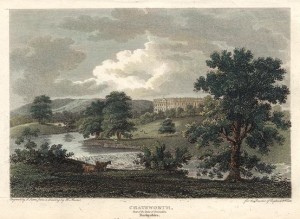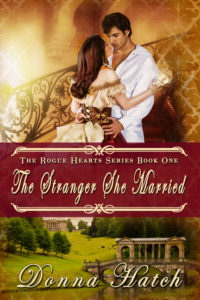 Since the subject of titles in Regency England seems to be both confusing and detailed, it bears revisiting. For today’s post, I will focus on heirs: both heirs apparent and heirs presumptive.
Since the subject of titles in Regency England seems to be both confusing and detailed, it bears revisiting. For today’s post, I will focus on heirs: both heirs apparent and heirs presumptive.
An heir apparent is the son of a titled lord or landholder. Let’s say, for example, the father is the Earl of Charming. Charming probably has a secondary title or two (or more) because most peers did, due to the whim of royalty over the years. If one of Charming’s secondary titles were, say the Viscount Handsome, then Charming’s eldest son would bear the courtesy title of Viscount Handsome. Handsome is Charming’s apparent heir, so he bears the courtesy title and is known as his “heir apparent.” I think of it as; “His heir is apparently his son.”
Note: Despite what you may read in some novels, sons who are heirs apparent cannot be disinherited from their rightful titles just because the father thinks the son is undeserving. It takes an act of parliament to do such a thing and those were granted in extreme cases.

Now, what if the Earl of Charming has no son–only daughters (or no children)? At this point, he now must grant his title and estates to his heir presumptive. It may be his younger brother or even a distant cousin–whomever is the closest living male relative. The heir presumptive does not use the courtesy title of Viscount of Handsome, but he can presume that he will someday be the Earl of Charming because no other living male heir stands in his way. Yet. Anyone who can be supplanted in the line of succession by the birth of a boy is an heir presumptive, no matter how unlikely that birth seems. One can think of this as; “The heir presumptive presumes he will inherit the title and property.”
If, of course, the good Earl of Charming eventually has a son, even in his latter years, the heir presumptive no longer can hope for such a grand inheritance, because it all goes to Charming’s son, his heir apparent. Immediately upon his birth, the new baby boy bears the courtesy title, Viscount of Handsome.
The only heir apparent is the current title holder’s eldest son.
Now this works the same way even if there is no title involved. Let’s say Mr. Dashing is a landowner, similar to the Bennett family in Jane Austen’s Pride & Prejudice. If Mr. Dashing had a son, his son would be his heir apparent. If he had 5 sons, the eldest would be his heir apparent. If, however, Dashing has no sons, only daughters (or no children) all of his entailed property now goes to the closest living heir–a younger brother or a nephew or a cousin, even if he is as obnoxious as the unforgettable Mr. Collins. In other words, the heir presumptive is granted the same way regardless if there is a title or courtesy title involved.
 If Dashing’s estate is entailed, he cannot choose to whom he will leave the property. It’s set in stone. It goes to the closest living male relative or heir. Dashing can will non-entailed property to anyone he wants, but nothing entailed, which most estates were.
If Dashing’s estate is entailed, he cannot choose to whom he will leave the property. It’s set in stone. It goes to the closest living male relative or heir. Dashing can will non-entailed property to anyone he wants, but nothing entailed, which most estates were.

In my Amesbury family series, The Rogue Hearts Series, the father of this unruly bunch is the Earl of Tarrington, and his eldest son, Cole, is his heir apparent who uses the courtesy title Viscount Amesbury and has since birth. When the Earl of Tarrington dies, Cole becomes the new Earl of Tarrington, and all secondary titles go to him as well. Cole’s heir presumptive would be his younger brother Jared. But Jared never uses a courtesy title. When Cole and his wife have a son, the child becomes the heir apparent and uses the courtesy title, Viscount Amesbury from the moment of his birth.
So, in a nutshell:
A lord’s son is his heir apparent.
A lord’s brother or nephew or cousin, whomever is closer to him in the bloodline, is his heir presumptive.
I hope this has cleared up any confusion and is useful to you in some way, even if all it does is explain why the annoying Mr. Collins assumed he would inherit Mr. Bennett’s property and why Mrs. Bennett was in such a state of agitation that she and her daughters might be thrown out into the cold, cruel world immediately upon her husband’s death (which actually kind of happened in Sense & Sensibility, if you’ll recall).

and the title hardly ever descends in the female line. If it does, then it’s special and very, very rare. A romance author would do better getting on with the romance, than explaining how these rare circumstances came about, IMO!
Great summation, Donna. Thank you!
Thanks so much for stopping by, Josi.
Thank you! This helped a load. I’m enjoying your tutelage.
I’m so glad to hear it, Heidi!